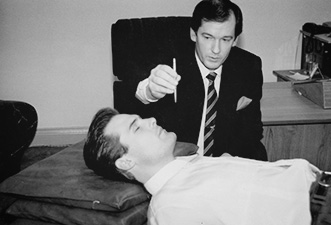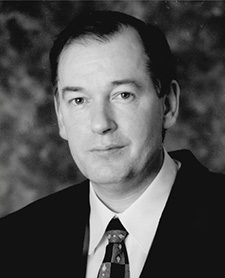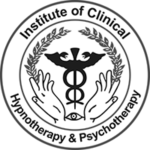Hypno-Psychotherapy
Dr Joseph Keaney has over 35 years in private practice in Cork city and has completed over 50,000vclinical inductions. He received his Doctorate in Clinical Hypno-Psychotherapy from AIH in the USA and is one of the most experienced and respected ethical practitioners of Hypnotherapy & Psychotherapy in Ireland.
He has also trained thousands of Hypno-Psychotherapists in Ireland and abroad and is currently the principal of the Institute of Clinical Hypnotherapy & Psychotherapy Training School. He is a member in good standing of several Hypnotherapy Institutes and Associations both in Ireland and internationally

Joe E Keaney has over 50 000 hypnotic induction in his career.

Hypnosis, altered state of consciousness and heightened responsiveness to suggestion; it may be induced in normal persons by a variety of methods and has been used occasionally in medical and psychiatric treatment. Most frequently hypnosis is brought about through the actions of an operator, the hypnotist, who engages the attention of a subject and assigns certain tasks to him or her while uttering monotonous, repetitive verbal commands; such tasks may include muscle relaxation, eye fixation, and arm levitation.
Hypnosis also may be self-induced, by trained relaxation, concentration on one’s own breathing, or by a variety of monotonous practices and rituals that are found in many mystical, philosophical, and religious systems.
ICHP Clinic
Hypno-Psychotherapy Medical Use
Hypno-Psychotherapy has been used to treat a variety of physiological and behavioural problems.
It can alleviate back pain and pain resulting from burns and cancer. It has been used by some obstetricians as the sole analgesia for normal childbirth. Hypno-Psychotherapy is sometimes also employed to treat physical problems with a possible psychological component, such as Raynaud’s syndrome (a circulatory disease) and faecal ‘incontinence’ in children.
Researchers have demonstrated that the benefit of Hypno-Psychotherapy is greater than the effect of a placebo and probably results from changing the focus of attention. Few physicians, however, include hypno-psychotherapy as part of their practice.
Some behaviour difficulties, such as cigarette smoking, overeating, and insomnia, are also amenable to resolution through hypno-psychotherapy.
ICHP School
Hypno-Psychotherapy Education
The Institute of Clinical Hypnotherapy and Psychotherapy – ICHP – offers extensive education in Hypno-Psychotherapy at Certificate, Diploma, Advanced Diploma and Graduate level:
– Diploma Clinical Hypnotherapy
– Diplomas in Clinical Hypnotherapy & Psychotherapy
– Advanced Practical Diplomas in Clinical Hypnotherapy & Psychotherapy
– Certified Supervisor for Hypno-analysts, Hypnotherapists & Hypno-Psychotherapists
– Certified Trainer Analyst for Hypno-analysts, Hypnotherapists and Hypno Psychotherapists
– Diploma Cognitive Behavioural Therapy
– DCH in Clinical Hypnotherapy
– European Certificate of Clinical Hypnosis
– Post Graduate Training in Services provided
Hypno-Psychotherapy FAQ
What is Hypnosis?
Unlike the television or Hollywood version, hypnosis is simply a state of deep relaxation. In this state the critical factor is set aside and the desired change is instantaneous.
Can anyone be hypnotised?
Yes. In fact, most people experience hypnosis several times a day. Daydreaming is a form of hypnosis. Also, the state experienced directly on entering and leaving steep is hypnosis
What does hypnosis feel like?
Because hypnosis is an altered state of consciousness, or awareness, at no time will you be asleep or unaware of what is going on. You will, however, be likely to feel more relaxed than ever before. A feeling of peace, serenity and well being generally accompany this relaxation.
Can I be made to do something against my will?
Absolutely not! There is a safeguard in hypnosis. Anything suggested to you in hypnosis that is against your morals, beliefs, religion, ethics, wants or desires will simply be rejected by you. It is impossible for you to be made to to do anything against your will.
What about those stage shows then?
Successful stage hypnosis relies on willing volunteers. Those people have a desire to join in the show and perform. Hypnosis merely helps them to lift inhibitions that they may, ordinarily, have against performing in public.
Will I remember what is said or done, after I come out of hypnosis?
Hypnosis is not an unconscious state, so you will remember what is being said and done. If you have no apparent memory of what is said or done, this is likely to be because you were drifting and daydreaming in your own pleasant thoughts during that part. Generally, with gentle prodding, you will fully remember everything.
Am I giving up control during Hypnosis?
No! You will be in such complete control during the entire session that if anything is said or done that you disagree with, or that you feel is in bad taste, you can simply open your eyes and leave the room. No one can control your mind, except you.
Can only ‘weak-minded’ people be hypnotised?
On the contrary, while everybody can be hypnotised, those that respond better are people with strong and active minds capable of imagination and mental dexterity. Those that refuse to be hypnotised, generally are exhibiting either a lack of understanding of the subject entirely, or ‘weakness’ in the form of inflexibility.
Does Hypnosis wear off?
Yes
